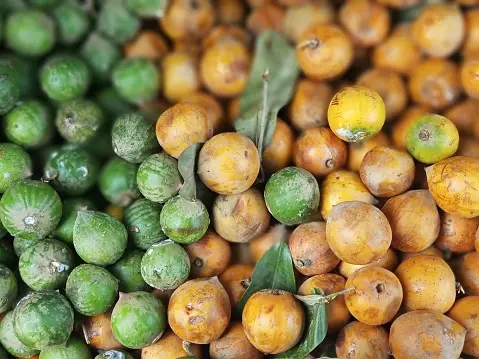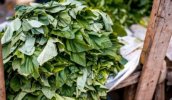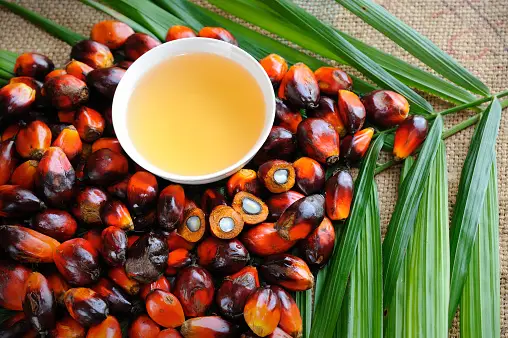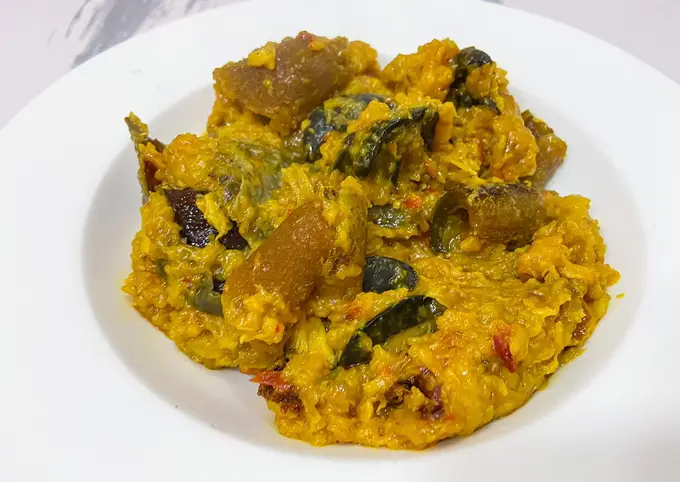The popular herbal mixture known as "Agbo" originated from the Yoruba tribe in Nigeria. It is also common in other African communities.
The herbal and other natural elements that makeup agbo are known to have therapeutic effects.
It is produced by either infusing alcohol with certain trees' leaves, roots, and barks or boiling them in water.
It is often prepared by skilled herbalists, who then sell it in big cities via SisiAlagbo women.
Women sell raw herbal Agbo mixtures in the markets under the name Elewe Omo.
They have been used for years to treat various illnesses, and they are frequently known as a more secure and all-natural substitute for traditional drugs.
Common Names Used Alternatively For Agbo
Agbo has been given several names by various writers, individuals, tribes, civilisations, ethnic groupings, and races.
Common names for agbo include:
- Concoction.
- Herbal mixtures.
- Herbal concoction.
- Various forms of medicine.
- Natural remedy
- Yoruba plants.
- Unconventional medicine.
- Traditional medicine.
- Herbs.
- Indigenous medicine
- Tradomedical.
- African tea.
- Nigerian medicine.
- Yoruba remedy.
Popular Types of Agbo Available
Agbo comes in several forms or brews. Several agbos have specific conditions it combats. It is also reflected in their names.
The different types include:
- Agbo Iba: For curing malaria.
- Agbo Iba Ponto: For curing typhoid fever.
- Agbo Jedi Jedi: For curing dysentery.
- Agbo Ara Riro: For body aches.
- Agbo Atosi touted: For curing sexually transmitted infections.
- Agbo Inarun: For curing rashes and severe body itching.
- Agunmu Atosi
- Ito Sugar
- Agbo Jedi
- Afato: For low sperm count.
- Eje Ruru.
- Burantashi gives a firm erection and cures erectile dysfunction.
- Babeje
- Opa Eyin
- Ale
- Eda
- Agunmu Inarun
- Kokoro Inueje
- Pelorie
- Iba
- There's even a brew rocking the market as an aphrodisiac
Constituents of Agbo
The principal constituent of Agbo include:
- Tree barks
- Plant leaves
- Tree/plant roots
- Plant seeds
Other constitute found in Agbo includes: Grated ginger, Honey, Apple Vinegar, Cinnamon powder, Chopped fresh parsley, Lemon, Bitterleaf, Scent leave, Moringa, Awolowo leaves, Indian hemp, Garlic, Cocoyam leaves and root, Beetroots, Grapefruit, Lime, Guava leaves, Potato leaves, Pumpkin, Sorghum, Salt, Fenugreek seeds, Alligator pepper, Dates, Mustard, Black stone, Palm wine, Water, Alcohol, Dry gin, Paraga, Beer, Small stout, Charcoal, Edible mushrooms, etc.
Side Effects of Consuming Agbo During Pregnancy
People who use agbo do not recognise whether it is under or overdosed, which might disrupt the multisystem activities of the kidney and liver, which are crucial to the body's functioning.
There is no formal dosage for agbo. There is also no standard metric for the measurement of its constituents, and scientific evaluation regarding the usefulness of consuming agbo during pregnancy. And as such, sparks a lot of side effects in the body of a pregnant woman.
It can cause blood poisoning, gastrointestinal problems, vomiting, diarrhoea, anaemia, kidney failure, stomach ulcer, and even death if not handled properly or diagnosed early.
Is Agbo Safe For Pregnant Women?
Many ladies have long questioned whether taking agbo while pregnant is safe.
Friends and family members push most pregnant women to take one or more agbo as a natural remedy for fever, morning sickness, malaria, and other illnesses.
So, is agbo safe during pregnancy? Not at all, no. All pregnant women should avoid agbo since the herbal combinations' formulas might induce contractions to start during pregnancy, which can lead to miscarriage or preterm birth.
Some of the core reasons why agbo remains unsafe for pregnant women are:
Lack of prescription: Agbo herbal mixtures are usually sold in plastic containers with no measured dosage. As such, you're left in the dark whether you're overdosing or underdosing. Pregnancy is a crucial stage where the system responds to various triggers.
The components aren't adequately measured or certified by health services and boards. There is a high risk of birth defects for the baby and forced labour when a pregnant woman consumes agbo during pregnancy. Hence, it is unsafe during pregnancy.
Allergic reactions: Agbo contains a myriad of herbs and leaves. A majority of individuals aren't aware of the effects of consuming a mixture of several herbs.
Due to the physiological changes that occur during pregnancy, you're more susceptible to allergies and other forms of reactions. This is another reason agbo is discouraged in pregnant women. It is unsafe and unregulated.
Though Agbo may have certain advantages, its adverse effects shouldn't be ignored.
As a result, speaking with your doctor before consuming certain things that pose controversy while pregnant or breastfeeding is crucial.
What are your thoughts on this? Do you think pregnant women should totally stop consumption? Let's know in the comment section. Stay PreggySafe!










Comments